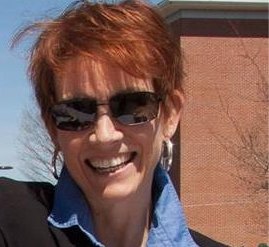A week ago today I was in Cambridge, Massachusetts, attending the Women, Action and Media conference sponsored by The Center for New Words at MIT. Appropriately dubbed, WAM!, this conference packed a real punch. Women and men came together not to bemoan the current state of American media (we all knew the bad news well before we got there) but to discover and offer strategies for making things better.
Panel discussions focused on working together, sharing information, making contacts. The attendees shared a commitment to injecting positive, liberal and transparent commentary into a divisive and ailing American media. Mainstream, progressive or emerging; conventional, print or virtual”all formats were discussed and all writers taken seriously.
I met a female pastor and real estate agent with her own progressive radio show in Cambridge, who has agreed to contribute her perspective in this space. In a session on women's writing groups, an attendee who wore a press pass for CBS and was a native of Senegal, suggested ways to bring women writers together in positive ways to produce news of our own. The panel organizer offered concrete strategies for these kinds of groups: avoiding "you" statements; discussing the text not the author; and explaining how a piece of writing makes a reader feel. In other words, methods of critique that encourage dialog and the open exchange of ideas, attitudes generally missing from commentary we encounter daily in the mainstream.
Celebrities of the women's media movement, like Jessica Valenti and Jennifer Pozner, were anonymous among the rest of us. (Unless you happened to be scoping out name badges, which I did a few times!) Not an entourage to be seen, not a handler in sight. Helen Thomas and Zaifa Ganzana, the honorable keynotes, mingled with attendees and chatted easily. During her keynote, Thomas bragged of being dubbed "the queen of not shutting up," and implored the rest of us to never shut up, never stop calling things as we see them. The other speaker, a journalist and former prisoner of the Hussein regime, turned her address into an opportunity to interview us. She asked the audience to discuss their projects and activism; what could have been a celebrity moment became instead an inclusive conversation about political change.
Some may argue that women are just built for this kind of thing'smutual admiration, open conversation, taking an interest in others. But I disagree (see: Ann Coulter, Katie Roiphe, Peggy Noonan). This attitude to sharing, empowering and networking seems to me ideology-specific and gender neutral: it's progressive.
The conference taught me a lot about the progressive movement of which I claim to be a part; and not just that I have much more to learn and there's work to be done. I see better now how movements for change depend upon people coming together and connecting one on one. We at WAM! explicitly (and tacitly through our attendance) reminded one another that, no matter who holds office and despite the lies we are told, the progressive movement isn't going away. I'm proud to be part of all this, especially my new role at OpEdNews, and happy to report I'll be back with all the WAMmers next year.





